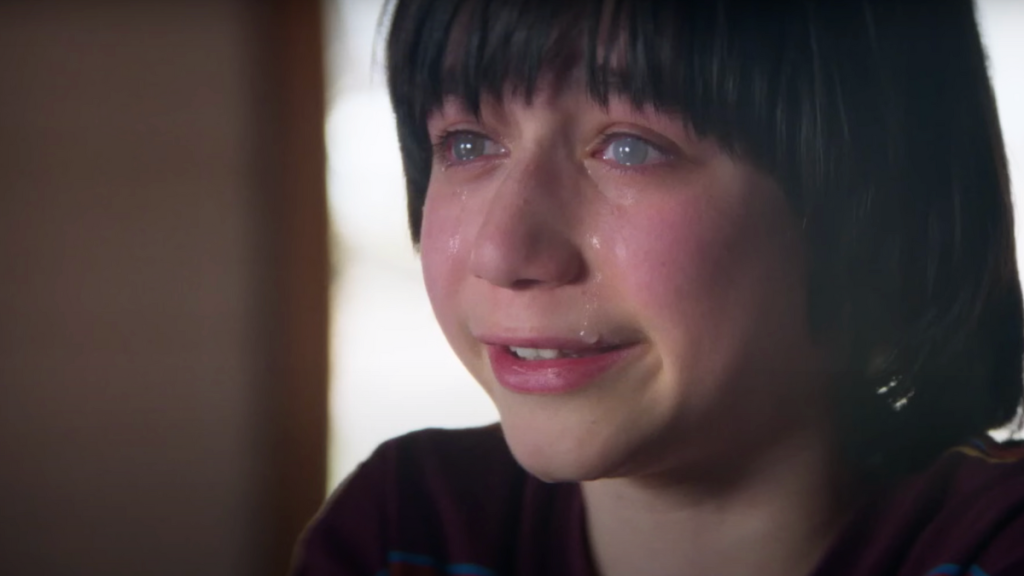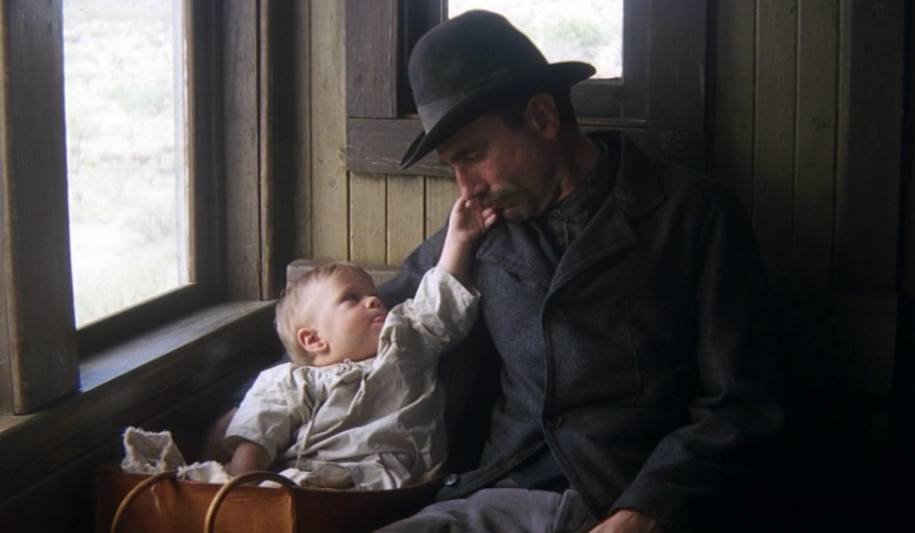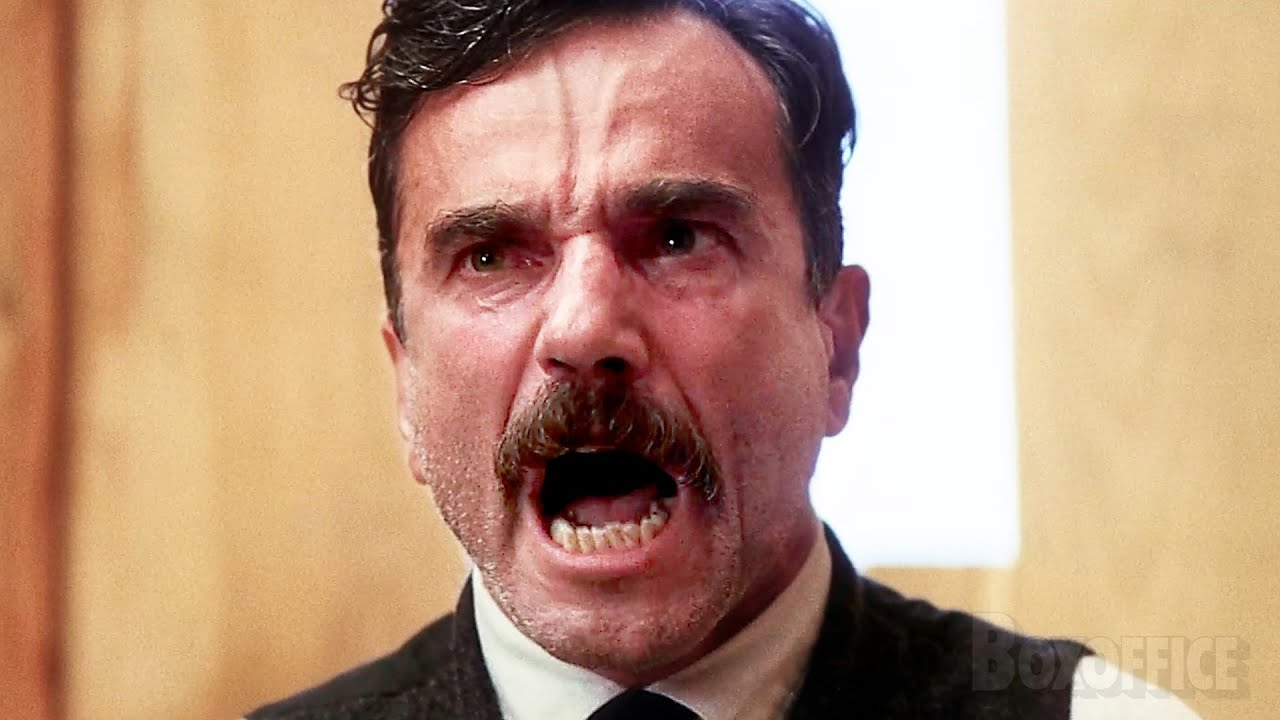A guttural scene, where Daniel lays out his emotions in an incredibly raw fashion. Daniel confesses, in front of a church congregation that he has abandoned H.W but if you know anything about his character, then you know he doesn't really care for the judgement of a few random churchgoers. Instead, the moment of realization hits him, that he has chosen his oil business over his child, that he has abandoned his boy. This is a powerful moment in the movie, and as for what I learned from it...well it's more about character writing for a Neowestern epic than for a family focused drama but I think there are lessons to take away from it in terms of composition (as previously mentioned, the two-shots). Most evidently, their final interaction is a shot-reverse-shot with an interpreter on the side, translating H.W's sign language, another layer of separation between Daniel and H.W. As Daniel's soul crumbles, he becomes further and further detached from H.W.
 |
| A fantastic performance from child actor, Milo Machado-Graner |





